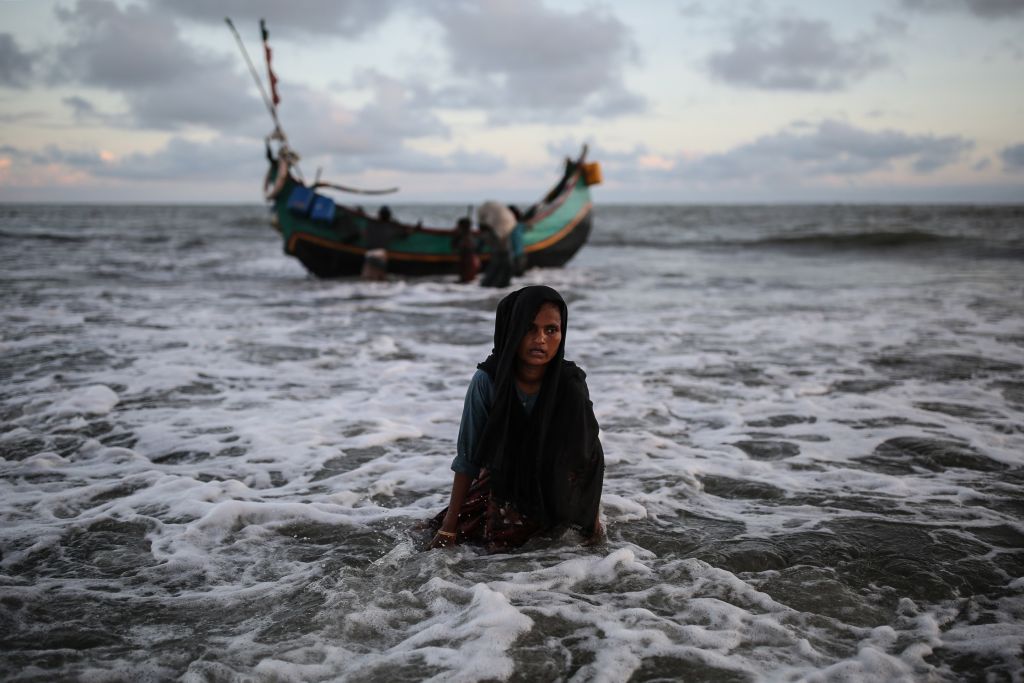
On Friday, the International Court of Justice announced that it had comprehensively rejected Myanmar’s objections to the continuation of the genocide case brought against it by the Republic of the Gambia over the treatment of Myanmar’s Rohingya ethnic minority. In a small but important victory for international justice, the case can now continue on to a final determination of Myanmar’s responsibility for genocide.
While the case can now proceed, Myanmar’s objections to the ICJ’s capacity to hear the case have delayed the proceedings, and thereby justice for the Rohingya, by at least a year and a half. The delay has meant that the one million Rohingya in Bangladeshi refugee camps and the tens of thousands still in internment camps in Myanmar’s western Rakhine State have continued to suffer in detention while waiting for these international legal processes to play out.
The case was originally brought in November 2019 by the Gambia, which alleged that Myanmar had committed genocide against the Rohingya during ‘clearance operations’ in Rakhine State, primarily in 2017. These operations resulted in the exodus of 740,000 mostly Rohingya refugees to Bangladesh, and involved serious human rights violations including mass killing, torture, rape and sexual assault, and the destruction of homes and mosques.
In December 2019, the ICJ heard arguments on whether to make an interim order for provisional measures—a hearing notorious for the appearance of Nobel Peace Prize laureate and former state counsellor Aung San Suu Kyi as agent for Myanmar. The court in January 2020 unanimously ordered Myanmar ‘to take all measures within its power to prevent the commission of all acts’ of genocide (as defined in Article II of the Convention on the Prevention and Punishment of the Crime of Genocide) against the members of the Rohingya group in its territory, and to periodically report to the court on the measures it had taken until a final decision on the case was reached. Myanmar complied with the court’s reporting requirements, but in January 2021 filed the objections to the court’s jurisdiction that have just now been resolved.
In February 2021, the Myanmar military staged a coup, which led to the jailing of Suu Kyi and a bloody crackdown on the military’s political opponents and civilians alike. Despite the coup, the case before the ICJ continues, and the military government has, perhaps surprisingly, continued its engagement with the proceedings. Ko Ko Hlaing, minister for international cooperation under the junta, appeared as agent for Myanmar at hearings conducted in February 2022, along with its attorney-general, Thida Oo.
But the coup may have directly contributed to the delay in these proceedings, since the exiled National Unity Government withdrew its objections to the ICJ’s hearing the merits of the genocide allegations less than a month after they were filed. Even the ad hoc judge appointed by Myanmar (an option for all states that don’t have a permanent judge at the ICJ) expressed some concerns with the court’s decision to allow the military junta to appear in the case.
Nevertheless, Friday’s decision is a resounding victory for the Gambia. The jurisdiction of the ICJ requires the consent of both parties to the dispute, which can be manifested by ‘matters specially provided for … in treaties and conventions in force’. In this case, the Gambia and Myanmar are both parties to the Genocide Convention, Article XIII of which provides that disputes relating to the ‘interpretation, application or fulfilment’ of the treaty can be submitted to the ICJ.
Myanmar had argued that the Gambia wasn’t the ‘real’ applicant in the case, but rather that it was the Organisation of Islamic Cooperation, an international organisation. Only states can appear before the ICJ, a point that was reiterated by the ICJ president during her opening statement when the military government first made its appearance. Myanmar’s second objection was that, because the Gambia had suffered no injury as a result of Myanmar’s treatment of the Rohingya, it lacked standing to bring the case since the Genocide Convention doesn’t provide for the concept of an actio popularis (a legal concept meaning that actions can be brought in the public interest). It also argued that there was no dispute between the Gambia and Myanmar. A fourth, rather technical argument related to treaty reservations by Myanmar and Bangladesh.
The ICJ rejected all of these arguments, three unanimously and the other by 15 votes to 1, finding that the Gambia was bringing the case in good faith, and that all of the states parties to the Genocide Convention have a common interest to ensure the prevention, suppression and punishment of genocide. In other words, any state that is a party to the Genocide Convention can bring an action to prevent or punish acts of genocide, even if their nationals are not involved or the acts take place on another territory.
As the ICJ pointed out, to hold otherwise would undermine the protection offered by the convention, because ‘victims of genocide are often nationals of the state allegedly in breach of its obligations’. This conclusion opens an important door for other states to bring legal action against genocidal regimes worldwide.
The ICJ’s decision also paves the way for other interested states, such as Canada, the UK, Maldives and the Netherlands, to join in the case and support the Gambia’s legal position. Some states issued a diplomatic statement to that effect within moments of the ICJ’s handing down of its decision.
Canberra, too, should see this decision as an opportunity to support the Gambia as intervenor and to demonstrate that Australia is once again focused on being a good global citizen with a commitment to human rights, international law, and the Asian region more broadly. Intervention in this matter would go some way towards restoring Australia’s reputation on the global stage.

